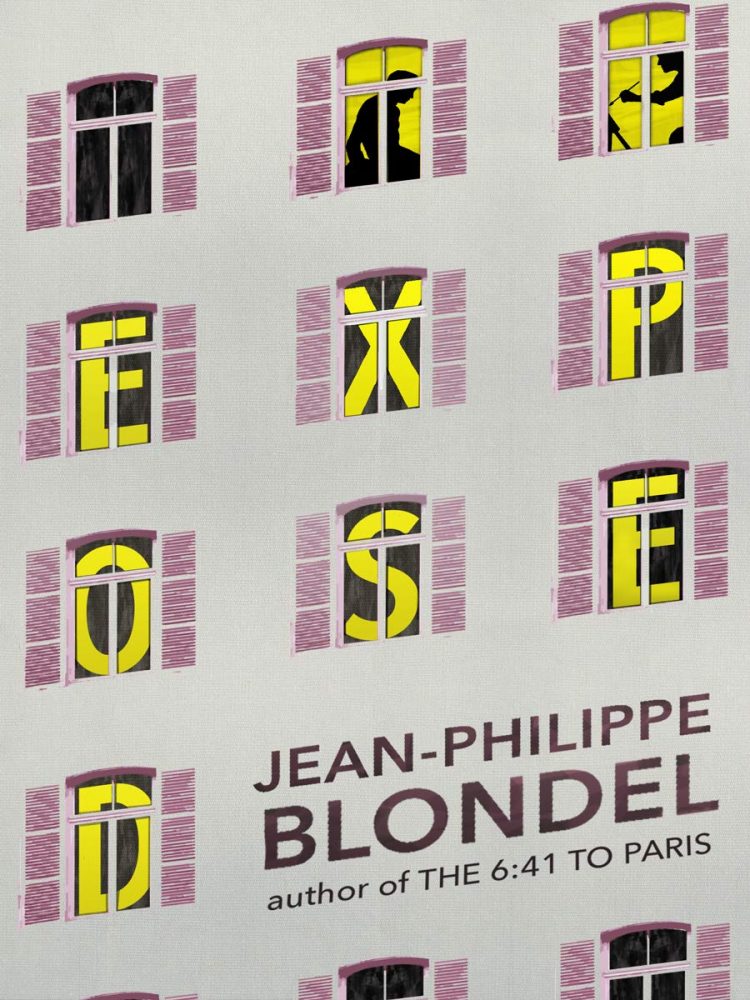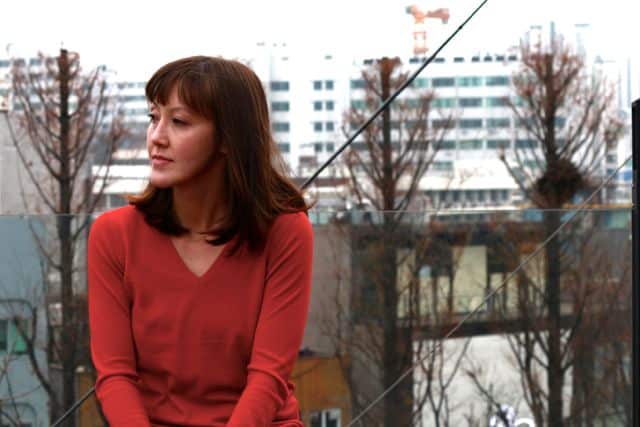It’s a curious thing to call a novel like this Exposed. It certainly deals with literal themes of exposure – as an ageing school teacher is approached by an ex -student (now a famous artist) who asks to paint him – but the title also teases a deeper subtext of exposure. Which is definitely there – definitely interesting, moving, sweet, and well-explored. But the nature of the word implies a kind of mystery to be exposed, and that’s not really the case. But we’ll get there.
Exposed is a French novel which leans into French stereotyping in a fun and delightful way. We have provincial towns and dreams of Paris lights; a painter struggling to reconcile his past obsessions with his present wants and needs; a newly old man careening obliviously towards, well, exposure – and, beyond that, maybe a second beginning.
“Mentally, I am slowly falling, Alice lost in a land of rabbit holes, I picture the months to come. Back in circulation. In bars, in the street, at parties. On the lookout. Exposed. Overexposed.”

The Story
Louis Claret is a disenfranchised English teacher in a small French town. He has gone through a divorce but attempts to maintain a close relationship with his two daughters as well as, at times, his ex-wife.
Alexandre Laudin was once a pupil of Claret’s, one of many who came and went as pupils do. Now, years later, he’s an almost-famous painter, and after reconnecting with his former teacher at one of his art openings, he asks Claret his permission to paint him.
From here, the short novel stitches together a wonderful relationship between the two men. There are stoically hidden emotions being forced down by both at times, but never enough to stall the growing connection between them as they become more intimate and more dependent on one another.
The whole story of Exposed is witnessed from Claret’s perspective, and so we get a biased view of Laudin which subtly changes as the story moves forward. We also get little flashback moments told in incremental bursts. These flashbacks pertain to his once-blossoming romance with his ex-wife Anne or other loves and friendships he struggled through in his youth.
They’re an appreciated window into Claret’s past which help to detail his character, add perhaps a little more dimension, but ultimately amount to little of value. His relationship with his ex-wife as it stands now, and especially with Laudin, are infinitely more compelling.
“I don’t know what to say, Alexandre.”
“Then don’t say anything, Louis. And let me suck the blood out of your soul, it will be my revenge and my tribute.”
A Mixed Bag
Where the narrative both soars and slips all at once is in its ‘exposure’. It is heavily implied from the title, the blurb, the premise, even the artwork, that there is a romantic and sexual intimacy at play between Claret and Laudin. (There is no spoiler in revealing that: it is quite literally plastered across the book itself.)
The gentle build-up of that intimacy is intoxicating, honestly. When it works, you’ll find it impossible to tear yourself from the page. It’s compelling, sorrowful, playful, and at once completely believable and mature.
What is, ironically, rather immature is the book’s attempts at subtlety leading up to the ‘exposure’ of their romantic connection. Hints are dropped and moves are made like a flirtatious game of chess. And all of this implies scandal, that they’re doing something wrong or forbidden – it implies the imminent revelation that, good God, all along this once-married teacher with two children is, in fact, gay!
But there is no revelation. His growing infatuation with Laudin is treated as ordinary, natural, and even expected by himself and everyone around him. That is, once the secret’s out. The reader can observe this as woke and progressive, yes, but its tone isn’t in keeping with the scandal that’s implied by the tone and the title itself. So, you have this audacious, scandalous build that, once the tension breaks, amounts to nothing at all. It never was scandalous or even unexpected.
So why attach that tense build-up at all? As a draw to the reader early on? Perhaps. But it wasn’t needed. Once their mutual infatuation is ‘exposed’, the story hits its stride and becomes a truly compelling read.
“We know our own children so little, in the end. We know other people so little, in general. All we do is project on them the fantasies they have inspired.”
And it really is compelling. Perhaps the real scandal lies in the difference in age – with Claret about to hit sixty and Laudin dancing around thirty. The age gap implies a futility to their relationship, as well as a sad attempt on the part of Claret to recapture his youth.
That is, until the book leans hard the other way. The narrative itself, and we who go along with it, root for a sloughing-off of Claret’s cobwebs, the mundanity of his life, and the baggage he has been lugging around for so many years. Though the revelation we are meant to feel regarding his sexuality and his affections falls flat, it does lead to an internal and external honesty on his behalf.
He is reassessing his life and what it means – what he actually wants out of it. It’s the story of a mid-life crisis, an Eat Pray Love kind of personal reinvention. Except that it’s not awful. It doesn’t come off as cheesy, bland, uninspired, and awkward. It’s totally believable and truly compelling. This is the first story that deals with an older person reaching out for a new start – a new lease on life – which I actually believe, and believe in. That’s a victory.
The tone of Exposed, aside from its failures in tension and ambiguity, is also astonishing, especially in its second half. We go from a quietness in which much of the world in the book is asleep and Claret is afraid of waking it, to a man stood atop a cliff, breathing in the air and searching, with heart racing, for something more.
Conclusion
While it may trip over its own ambitions when it comes to mystery, subtlety, and guilty pleasures, Exposed excels at the more honest side of things. Love and intimacy, romance and sexuality – they’re all portrayed with a real deft hand by Blondel.
It very much succeeds at painting the archetypal washed-out ageing man finding a new lease on life. Every one of his relationships is believable. And the subtle changes in his personality, speech, and behaviour, as brought on by the influence of Laudin, are inspired.
The world comes into colour for this man, and we see it too. The greyness of the book which we feel at first, in its tone, imagery, dialogue, is stripped away layer by layer. There’s a true and compelling empathy at play between ourselves and the darling protagonist that is Louis Claret. While Exposed fails to deliver on strong tone and pacing at times, it delivers on character and relationship like few novels can.
If you enjoyed this review, you may also like Sleepless Night by Margriet de Moor.



